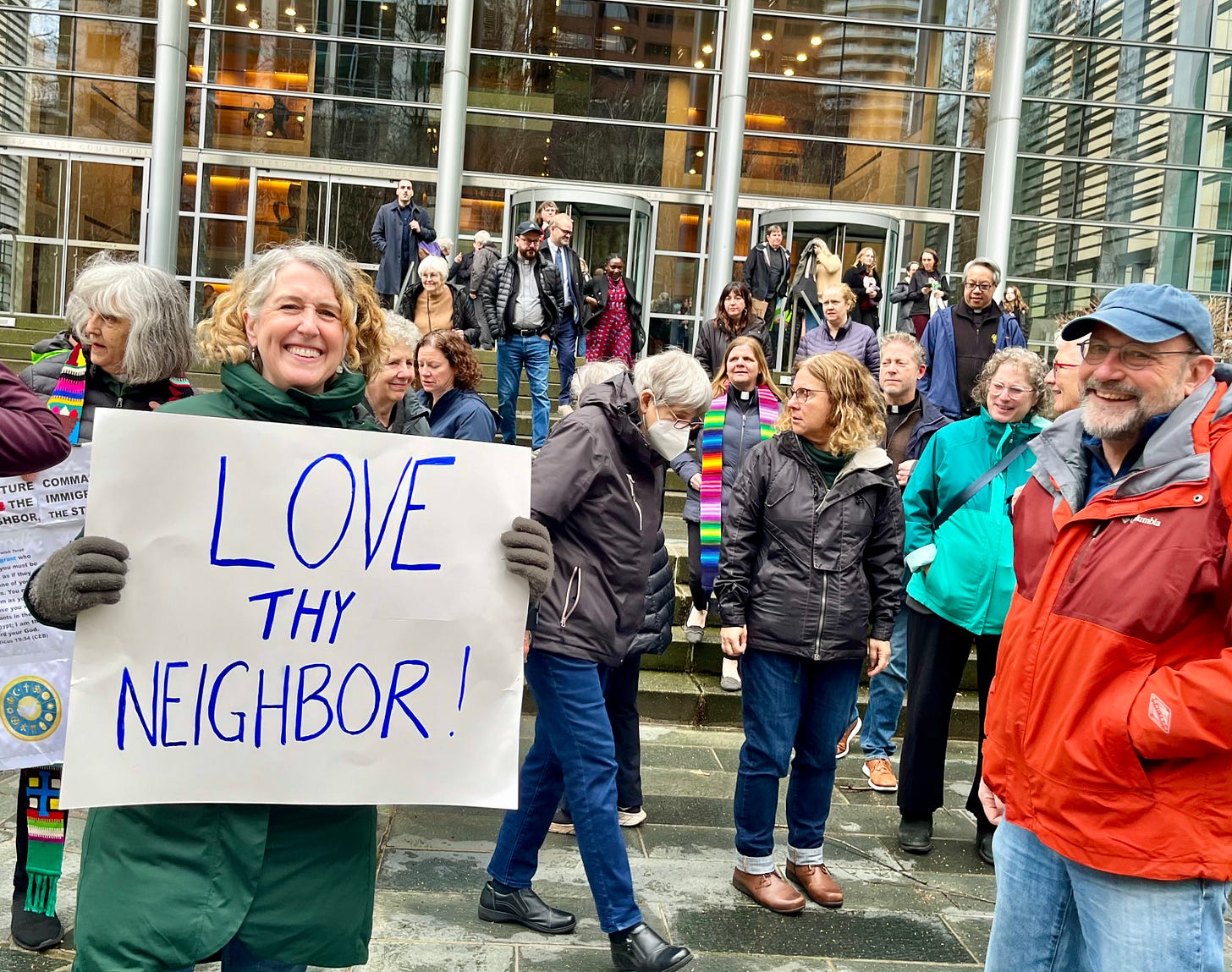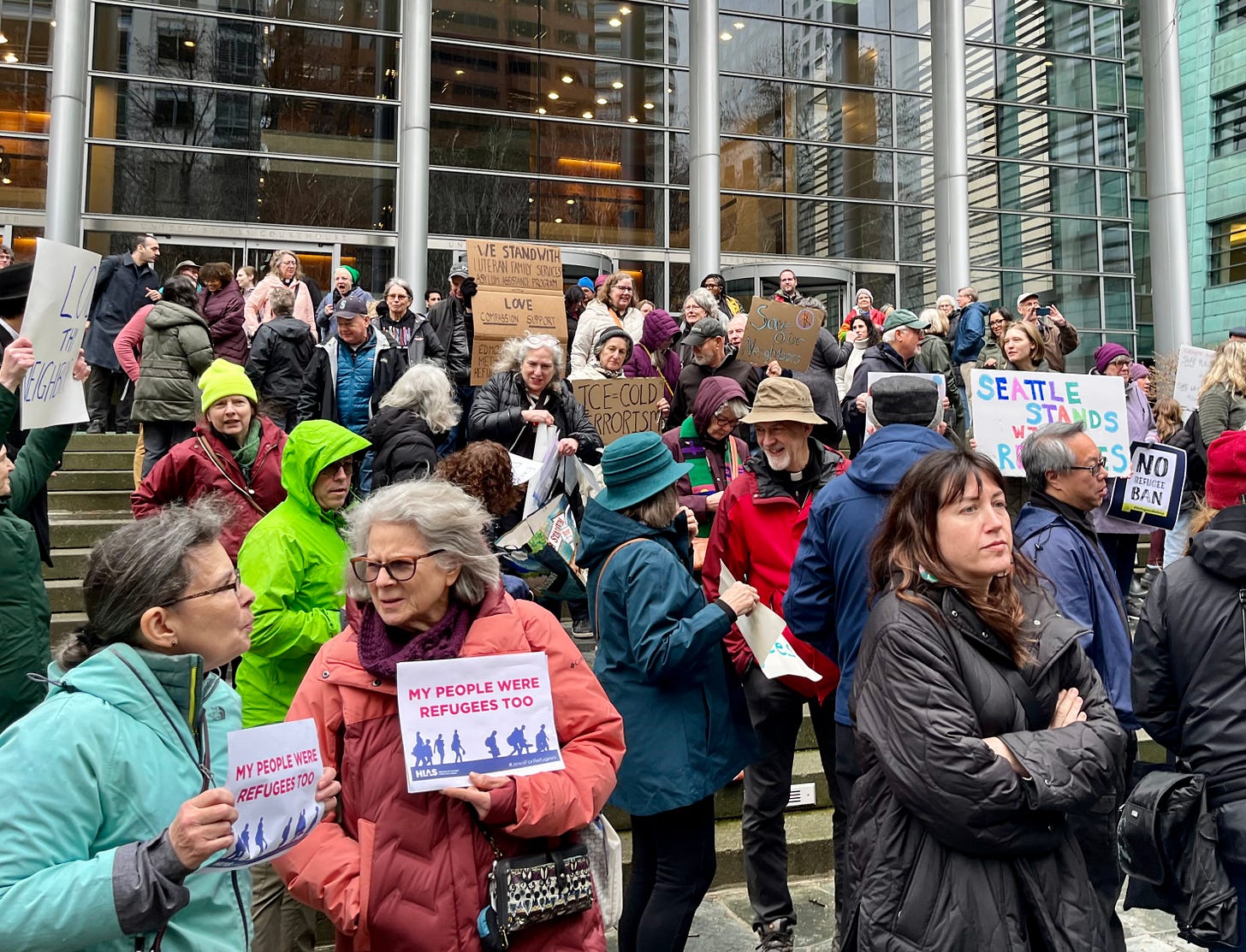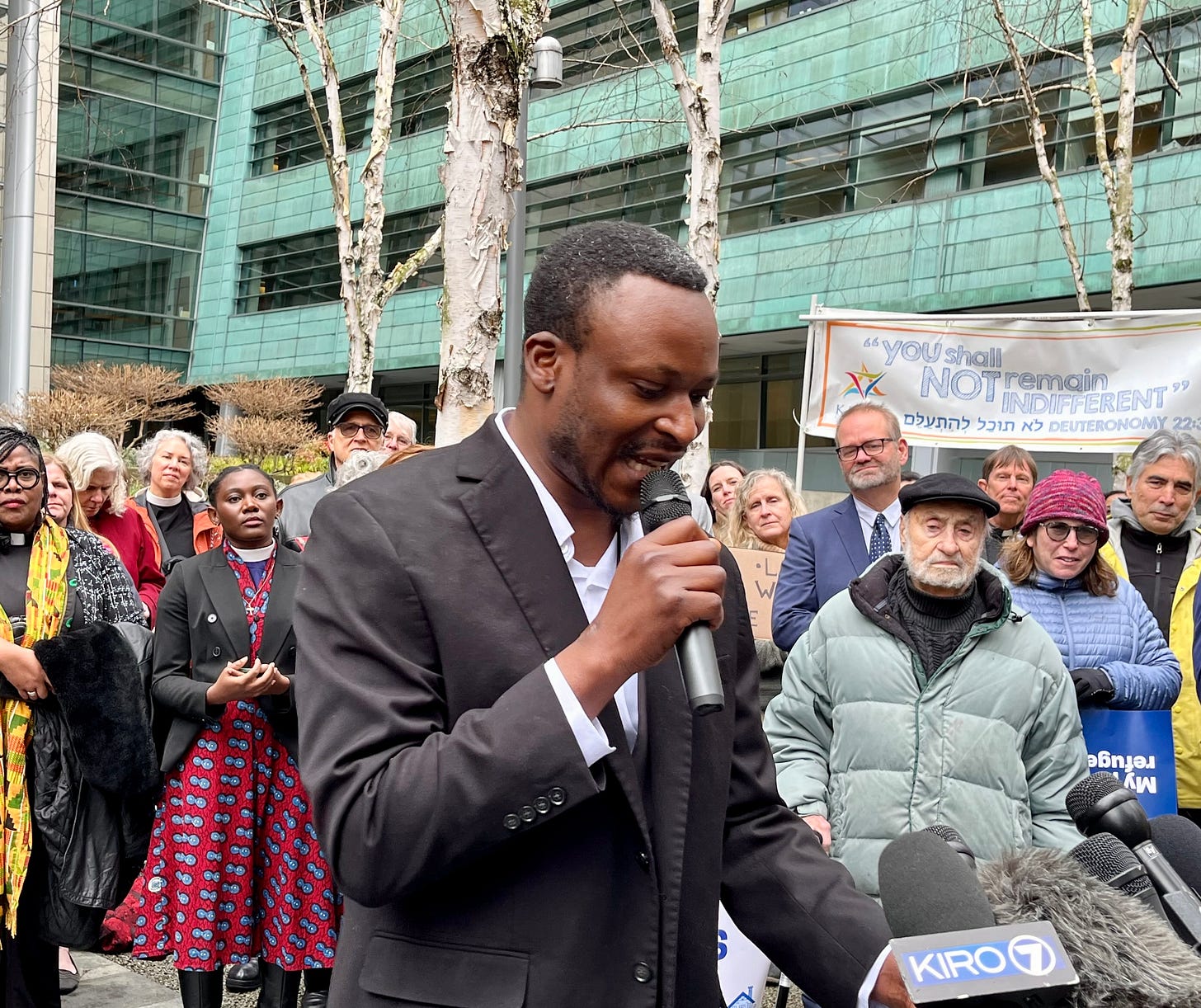Federal judge blocks Trump’s executive order halting refugee admissions - and I was in court
'The president has substantial discretion to suspend refugee admissions...but that authority is not limitless'
[Washington state has third largest number of refugees in US. Image: Andrew Buncombe]
When a 22-year-old-year man who had fled civil war in the Democratic Republic of the Congo was told he and his family had been approved for a move to the United States, he said it represented nothing less than “a second chance at life”.
The young man, his wife and their new born baby, had sold their belongings to buy new clothes and shoes. Then, just a day before they were due to travel from where they were living in Nairobi, Kenya, they were told Donald Trump had suspended America’s refugee programme, which since the end of World War II, had provided safe haven to hundreds of thousands of people from some of the most hardscrabble places on earth.
“I hoped there was a mistake,” the young man, who has used the pseudonym “Pacito”, said in a statement issued by his supporters.
“That night, my wife, my baby, and I slept outside the transit centre in the parking lot, along with other refugee families waiting to travel. In the morning, they told us President Trump had cancelled all refugee travel. Now I don’t know what we’re going to do, we have nothing.”
This week, a judge in Seattle, delivered a ruling that will likely give cheer to Pacito and up to 10,000 others who had passed tough, years-long screening, when he froze the president’s action.
“The president has substantial discretion to suspend refugee admissions,” Jamal Whitehead, a federal judge appointed by Joe Biden to the Western District of Washington, told the court. “But that authority is not limitless.”
He added: “Preliminary relief is warranted here.”
I was among a more than a hundred activists, reporters and legal professionals sitting in an overflow of the court, listening to the presentations made by Deepa Alagesan, a senior attorney with the International Refugee Assistance Project (IRAP), and August Flentje, a government lawyer with the Department of Justice.
When the judge ruled in favour of the plaintiffs, a cheer went up.
This week’s hearing in Seattle was just one of dozens of legal challenges that have been made amid a flurry of executive actions that Trump has taken in his first month in the White House, seeking to fulfil his campaign promises on everything from dealing with immigration, to lowering the cost of living. Some have been more effective than others.
During the 2024 election campaign, Trump made soaring undocumented immigration into a crucial issue, that Democrats failed to combat. He promised to deport millions of migrants without papers, especially criminals.
[More than 100 supporters attended the Seattle hearing. Image: Andrew Buncombe]
In recent weeks, members of the nation’s Immigration and Customs Enforcement agency (ICE) have been raiding homes, seizing people in the country without documents, and holding them in camps prior to deportation. Some have been sent to the military prison at Guantanamo Bay, while others have been dispatched to third nations, such as Panama, and sometimes held in chaotic situations.
A feature of many of Trump’s actions has been their haphazard, scattergun approach. On the issue of immigration, for instance, he ended all refugee admissions and called for a report after 90 days, even though people approved under the United States Refugee Admissions Programme, have been through intense background checks.
And while polls show a majority of Americans back Trump’s efforts to deport illegal migrants, other surveys indicate as many as 70 per cent support having a refugee system.
Millions of Americans are proud to be a refuge to those in need, in the same way the country was for many of their own ancestors who fled war or conflict, or else arrived at Ellis Island in seek of a new beginning.
Studies also show that refugees contribute hugely economically, paying more in taxes than the government spends on the refugee programme.
Washington state is home to the third largest number of refugees in the country, with the Lutheran church being a major sponsor of new arrivals.
This week, several former refugees were at the court in support of the legal action brought by IRAP, Church World Service, and the Lutheran Community Services Northwest.
Tshishiku Henry, said he and his family moved to Seattle in 2018. “That opportunity was more than just a new beginning - it was a lifeline,” he said, urging the president to lift the ban.
[Former refugee Tshishiku Henry says coming to US was a ‘lifeline’. Image: Andrew Buncombe]
Rev Emillie Binja, now a pastor, said: “It has broken my heart in the last couple of months to hear the myths and the ways that our struggles are being demonised and making us look like we do not belong in this place. The truth is this is our home.”
I grabbed a word with another supporter, Dianna Brement, 68, one of many members of the area’s Jewish community who were there to show solidarity.
“The Torah tells us we have to help strangers,” she explained.
It is likely Trump will challenge this week’s ruling, as his administration has many other court decisions that have gone against him. It is also not clear if Trump will obey the judge’s decision. It seems unlikely Trump will want to accept new arrivals while an appeal is imminent.
But for now, according to the judge’s instructions, the freeze should be lifted and “Pacinto” and the other thousands approved for travel, should be permitted to make their way to the U.S.
“The judge ordered an injunction of the president's unlawful suspension of the refugee programme,” IRAP lawyer Linda Evarts, told reporters after the conclusion of the hearing.”
“It takes some time to organise [new] flights…but the freeze has been lifted.”





Powerful to hear of the real world impacts on individuals Andy and that the tax receipts of those that make it to the US exceed the cost of the refugee program .. something that should be more widely known, thanks for another great piece